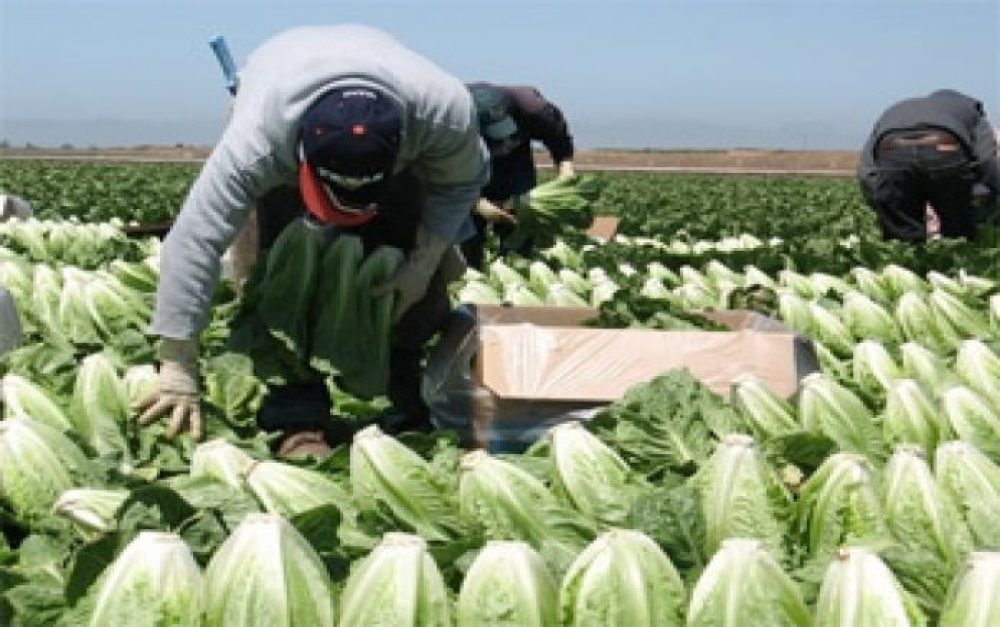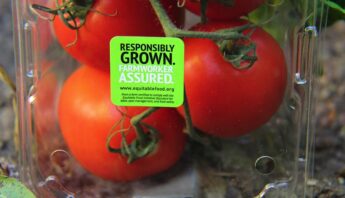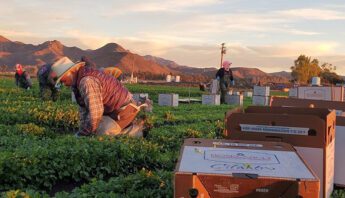Last week California’s pro-farmworker governor of the 70s showed himself as a farmworker foe when he vetoed two important bills — The Humane Treatment for Farm Workers Act and the The Farm Worker Safety Act. The first would make it a misdemeanor crime, punishable by jail time and fines, to not provide appropriate water or shade to workers laboring under high heat conditions. The second bill would have allowed workers to enforce the state’s heat regulations by suing employers who repeatedly violate the law. Both common-sense interventions are critical precisely because what few protections exist for farmworkers are rarely enforced.
Governor Brown’s bad decision came down at the same time as the Oregonian reported on lax enforcement of underage labor laws and inadequate safety rules resulting in shocking stories of child labor in the fields. And as detailed in a recent, excellent article in The American Prospect, wage theft remains par for the course for the approximately two million farmworkers whose labor puts food on our table.
An old story, relived & updated
Edward R. Murrow’s shocking documentary, Harvest of Shame, was aired on Thanksgiving day in 1960. One would think things must have improved, right? Think again. That’s what I said to undergrads in my introductory biology classes in the 80s when I showed them the next PBS version of Harvest of Shame. It was called A Day Without Sunshine and aired in 1976, much to the chagrin of the American Farm Bureau Federation.
And just last year the United Farm Workers joined with the progressive Palo Alto-based food service company Bon Appétit Management Company to produce an updated report, Inventory of Farmworker Issues and Protections. Key findings of the March 2011 report include:
- U.S. farmworkers have fewer legal protections than workers in other sectors;
- Rampant, unfair and unsafe labor practices go unreported and undocumented; and
- Farmworkers are socially and economically marginalized with limited legal recourse to fight abuse and exploitation.
Why is a food company doing this work? Because, as Maisie Greenawalt, vice president of strategy for Bon Appétit, explained to me, she does not — despite concerted effort — know where to go to source produce that she is confident is not produced by subjecting farmworkers to the kinds of conditions exposed in the report. A few months after the release of the Farmworker Inventory, Bon Appétit organized a TEDx event highlighting the problems of U.S. farmworkers and other low-wage food system workers, but also offering solutions.
Moving the marketplace
While public policy reform is a must to ensure that all workers — farmworkers included — are guaranteed a safe, dignified workplace with fair compensation, policymakers are clearly not leading the way. So who is? As ever, it is farmworkers themselves. But this time in coordination with farmers and retailers. The Agricultural Justice Project has created and promoted the use of a social justice standard for agriculture geared towards organic family farm operations, while the Florida-based Coalition of Immokalee Workers has brought increased wages and promises of improved work conditions to the previously entrenched Florida tomato industry, moving the likes of Taco Bell, McDonalds, Burger King, Whole Foods and Chipotle, among others.
At Pesticide Action Network we are very excited to be at the core of the newest effort to bring changes to industrial agriculture through the Equitable Food Initiative (EFI). EFI offers a certifiable standard of worker protection, food safety and reduction of on-farm pesticide hazards. The EFI was started by the three U.S. farmworker unions — United Farm Workers (UFW), Pineros y Campesinos Unidos del Noroeste (PCUN), and the Farm Labor Organizing Committee (FLOC) — joined by two farmworker advocate organizations (Farmworker Justice and National Farm Worker Ministry), Oxfam America and PAN. Its 11-member steering committee now includes Bon Appétit, Calvert Investments, Costco Wholesale, Andrew and Williamson Fresh Produce International, two non-profit organizations with expertise in food safety — Center for Science in the Public Interest and Consumer Federation of America, and PAN with our expertise on hazardous pesticides and safer alternatives.
We fully believe that the EFI and other market-based initiatives will lead, ultimately, to substantially improved work conditions throughout the country and internationally, and will set the stage for public policy that reflects and supports this progress and helps to ensure a new, better, safer floor for industrial agriculture.








